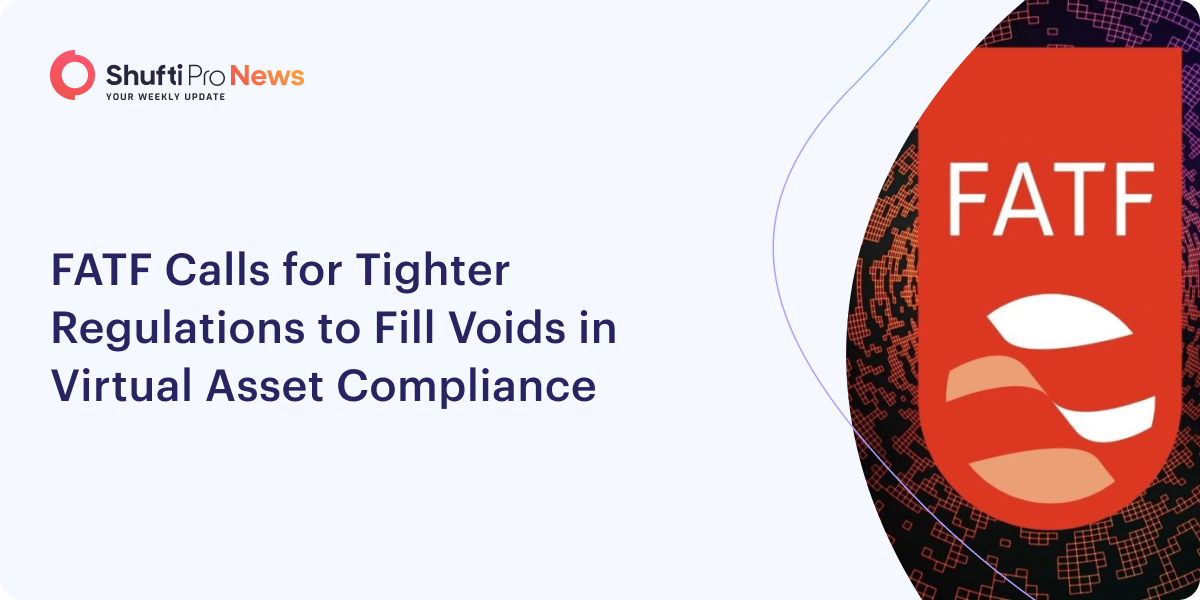FATF Calls for Tighter Regulations to Fill Voids in Virtual Asset Compliance

The Financial Action Task Force (FATF) highlighted a regulatory gap in the compliance system for virtual assets. As a result, the upcoming report is expected to highlight risks and recommend immediate action.
A regulatory gap has been identified in the regulatory system for virtual assets by the FATF at its third plenary meeting held in Paris. There were approximately 200 participants at the session of the FATF, where it evaluated whether the recommendations it had made about virtual assets and virtual asset service providers (VASPs) had been implemented. It was reported and evaluated that most of the jurisdictions represented at the plenary were either partially or non-compliant with these recommendations.
Several jurisdictions have yet to implement essential requirements, according to a publication released by the group following the plenary. Over half of the respondents to the survey had yet to take any steps towards implementing the agency’s “travel rule,” which prohibits the transfer of funds to sanctioned individuals or entities. According to the recommendations, sending and receiving identities must be collected during transactions by the travel rule. The agency may suggest additional data requirements based on a specific threshold. Using this relatively new recommendation for VASPs, communication guidelines and cross-border data-sharing protocols can be established within the cryptocurrency industry.
As a result of non-compliance with these recommendations, the FATF plenary highlighted the risks posed by criminals exploiting regulatory loopholes which has been recognised as a major priority to close these gaps in the compliance system. A forthcoming report will be published by the FATF urging countries to implement the recommendations as soon as possible to prevent criminals from exploiting these weaknesses.
North Korea’s intentions regarding its weapons of mass destruction program will also be addressed in the report, published on June 27th. Additionally, the program will address the risks associated with peer-to-peer transactions and decentralised finance activities.
According to FATF President Raja Kumar, G7 countries should be leaders in implementing FATF recommendations. This way, illicit crypto transactions will be eliminated, and other nations will be encouraged to follow suit.
Money laundering and illicit activities facilitated through cryptocurrencies are among the growing concerns the FATF has regarding virtual assets. Jurisdictions can implement robust compliance measures to prevent and detect illicit financial transactions.
To maintain the integrity of the global financial system, regulatory gaps must be closed in the compliance system. FATF plays an important role in setting international standards on counterterrorism financing and money laundering. To remain competitive, countries must adjust their regulatory frameworks to keep pace with the use of virtual assets. Upon publication of the FATF’s upcoming report, countries worldwide will be encouraged to prioritise implementing recommended measures. The efforts of these organisations can contribute to preventing money laundering, enhancing financial transparency, and increasing trust in virtual assets.
Suggested Reads:
MONETARY AUTHORITY OF SINGAPORE (MAS) FINES FOUR FINANCIAL INSTITUTIONS FOR BREACHING AML LAWS
BIDEN’S ADMINISTRATION ANNOUNCES NEW TIMELINE FOR AML INITIATIVE AND BENEFICIAL OWNERSHIP RULES

 Explore Now
Explore Now













